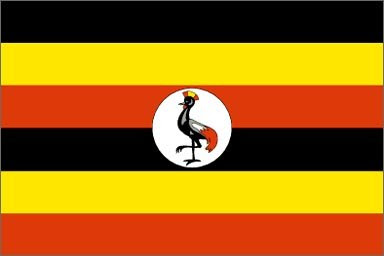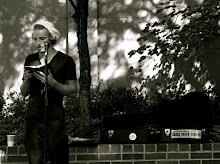
I take it as axiomatic that a church should not display a national flag in or around the physical premises of the church building, much less in the assembly or sanctuary. That this is not self-evident is in itself a problem, of course, but for those churches that do see the discrepancy but struggle to find a satisfying solution or do not feel threatened by the American or other flags' visible presence (usually out of a thoughtful gratitude, rather than a frothing patriotism), I wonder if there are any faithful options. This especially came into sharp focus recently after a story I heard secondhand about a church, contrary to regular practice, displaying the American flag for Memorial Day.
The reasons are manifold for maintaining an absence of the flag, but the danger is uniquely potent for American Christians, for two reasons: First, since its inception America has been inextricably linked conceptually, metaphorically, religiously, and militarily with the (Protestant) Christian church. America has been proclaimed a new Israel, a city on a hill, the hope of the nations, the triumph of man, the promised new world, etc. These are frighteningly blunt in their appropriation of eschatological images of the church in the New Testament. Thus the claim that "America is a Christian nation" or, as straightforwardly as possible, "Christian America." This is -- and it ought not need to be said at all -- idolatry, plain and simple. The church is the people of God, the body of Christ, the temple of the Holy Spirit. America is none of these things. Even if every single individual that made up the nation called America happened to be, by birth or by choice, Christian -- like other European nations of the past, I might add -- nothing would thereby be changed. America is not and cannot be the church, and therefore is not and cannot "be," without qualification, "Christian."
Second, America is not merely
one among many nations, nor merely a nation "with the soul of a church" or one happening to contain many self-professed Christians; America is, in a profound sense in our time,
the nation. It is the preeminent world leader in military power, economic strength, and political muscle. When America throws its weight around, people amen, cower, rebel, submit, flee, or at the very least flinch. There are no bystanders in the time of America; one is not neutral toward it. It is in the business of picking sides and asking others to do the same. That is simply what it means to be "the best" in those areas the world deems important.
And so, as any American knows, what comes along with being (or claiming to be, or acting like) "the best" is a resilient, remarkable, fervent
pride. Americans love America, love
being American, love that America is what it is. And with that comes a kind of devotion which, accordingly, involves the American flag. The flag is the symbol of the nation: its history, its virtue, its standing, its future. And because the nation demands allegiance, Americans pledge allegiance to that flag as the one thing uniting them all together.

It is easy to see, then, regardless of how one feels about Christians actually
pledging allegiance (we'll leave that for another day), why the presence of the flag in assembled Christian worship would be problematic. Here is a visual representation of National, Economic, Political, Military Power that expects, solicits, and even demands Pride, Devotion, and Allegiance. There are four visual possibilities for the flag in worship, all equally detrimental in their role:
1) above the cross, in which the cross of Christ lies symbolically in subordinate service to the flag;
2) on level with the cross, in which the two are linked visually as mirror and equal representations of the same divine reality;
3) below the cross, in which the flag exists ontologically in service to the cross; and
4) in place of the cross, in which the cross of Christ has disappeared altogether and the flag has replaced it as the symbol of the faith.
Obviously, every one of these possibilities is disastrous. The cross represents to us the absolute call of Jesus to each of us individually and to us together as a community to follow after him, to commit ourselves utterly to him in allegiance above and in replacement of all other allegiances, to renounce all former claims in order to become citizens of the kingdom of God. The flag, by any pairing imaginable, enters into this call not as a rival claimant but as a complimentary fellow, one more icon in the visible reverie of the faith. The God of Israel, however, is a jealous God, and he will not stand to have a rival god in his presence, and thus not in the gathered worship of his people.
I hope it is clear, therefore, why it is utterly inappropriate for the American flag to be displayed in, on, above, around, or by means of any other coterminous preposition vis-a-vis physical church grounds. Before moving on to my uncertain proposal, though, I should also note an apparent doublesidedness to this brief explanation. On the one hand, this temptation and reality is, in the present day, uniquely American. Being the Biggest and the Best, the most Christian and the most Iconic, we are nearly singular in our patriotically syncretistic temptations. On the other hand, however, there is nothing "less wrong" with, say, a village church in Uganda or an apartment church in Russia displaying their respective flags. Nationalism is a sly devil; rabid revolutions and demographic violence do not demand international influence for participation. And the call to discipleship with its subsequent expectations do not waver according to nation.

Now, with all of that said, what of possible "faithful options" of which I hinted above? This is merely a thought, and probably a bad one, but I share it in hope for feedback and contemplation.
What if, in a church accustomed to display of the American flag, instead of fighting the battle to remove the flag completely -- which, while a
commendable fight, too often rightly earns that coercive description by the tactics and attitudes employed -- other nations' flags were
added to the display? And not only random flags -- of equal size and shape as America's! -- but chosen specifically for that specific church in that time and place, in visual subordination and subservience to the cross. (If there is no cross, of course the whole project falls apart.)
For example: begin with the American flag. Then add the flags of any church members' home nationalities, whether Mexico, Britain, or Australia. Next add the flags of all the international missions locations that church is involved in, say, of Uganda, Honduras, and Croatia. Finally, take the flags of the half a dozen or so most prominent, most talked about, most reviled, most foreign
enemies of America (from the past, present, and foreseeable future), and display those too -- say, those of Iran, North Korea, Cuba, China, Russia, Venezuela, and Sudan. And order them chronologically, randomly, or even by "greatest enemy," beginning in the center and moving outward.
So displayed might be, in some order, the flags of Australia, Britain, China, Croatia, Cuba, Honduras, Iran, Mexico, North Korean, Russia, Sudan, USA, Uganda, and Venezuela. Fourteen nations, from around the world, ordered arbitrarily, some home to members of the church, some home to fellow members of a missionary church connected to this one, and some explicit enemies of the nation in which this church resides.

What might this convey to the people of the church?
What if it meant that Jesus, the one to whom the cross points, is Lord of and over each and every one of these nations, fully and equally? What if it meant that the great commission applies to each and every one of these nations? What if it meant that
God is already present by his Spiritin each and every one of these nations? That Jesus died for each and every one? That God loves each and every one? That each is on equal footing before God; that each belongs to the broad sweep of history that is God's created world; that each is mere withered grass before the Word of God; that each is allowed no ultimate claims of allegiance before the one true God? That any person of any tribe or tongue is welcome in the assembly of this gathering of God's people? That when we pray, we not only pray a blessing for the well-being of the nation in which
we find ourselves as exiles; we pray even more fervently for the blessing of our
enemies, whether of the church or of the nation in which we reside. All are one before the Lord our God, for God is not the God of Jews alone, but of Gentiles also. And we pray
Maranatha!
Come Lord! We pray that God's kingdom would come on the earth -- for we know that it has not come in full, not in any nation or place, but we await it in its fullness in all times and in all places and in all languages: for the coming of the Lord; for the New Jerusalem; for the tree whose leaves are for the healing of the nations.







